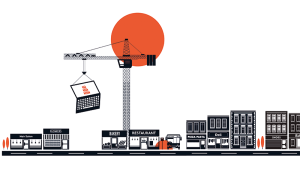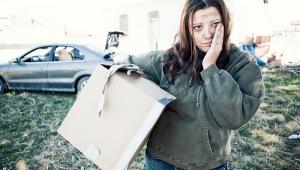Thirty years ago, Downing Street (where I then worked) was in the grip of an economic crisis.
Then it was inflation, where now it is deflation, but the results were the same: plunging production, soaring unemployment and genuine doubt about whether Britain had a stable future.
On top of that, we were in the last few months before an election had to be held.
And what was the contribution of the Central Policy Review Staff, then the Cabinet’s source of ‘blue sky thinking’, to the crisis? It was to produce a paper on alcohol policy. Its conclusion, backed with charts, tables and graphs, was that drink was too cheap and the government should increase its price.
In the comical ineptitude of its timing, the CPRS was matched this week by Sir Liam Donaldson, the government’s chief medical officer. Donaldson is not unreasonably concerned about the dangers of alcohol to health — aren’t we all, at least so far as the health of others goes. He therefore wants minimum prices for booze — £20 for a bottle of vodka was suggested.
In the CPRS’s days, reports such as this were private, so ministers could transfer them from their boxes to their waste paper bins without public utterance. These days, what should be intimate advice to ministers immediately gets out into the public domain.
So Work and Pensions Secretary James Purnell, perhaps because he isn’t health minister, got the job of kicking Donaldson’s suggestion into metres-high grass. He knows that an election is coming and he is young enough to remain hungry for office.
As any elected politician in his shoes would tell you, a time when recession is hurting is not the best time to put the most obvious anaesthetic beyond the pockets of poorer citizens.
A medical officer with a political instinct would have held his fire. In 18 months’ time, whichever government is in power is going to have to face the consequences of the present save-the-banks spending spree. Public expenditure will have to come down or taxes go up; or both.
‘Sin taxes’ are not popular, but no tax ever is. And health concerns would be a good cover for the government when it wants to increase its revenues from alcohol.
Clearly it makes more sense to tax drink rather than set a minimum price for it, as the Scottish Government is planning to do and as Donaldson seemed to suggest. For if you set a minimum price, you add to the supermarkets’ profits at the expense of consumers. Tesco, bless it, is not obviously now in need of a major boost to its revenues at the consumer’s expense.
However, if you tax it, you add to the government’s resources — including, presumably, those for the health service — although you would not expect a chief medical officer to understand that.
Putting up prices is never popular and this particular tincture has a nasty taste to it. Less well-off people, already strapped for cash, would have no alternative but to cut back.
Meanwhile, however, Sir Fred Goodwin, bathing in the jacuzzi of cash given him as his reward for failure, will be able to tuck into the Bollinger to his heart’s content. The fine wine market is said to be recovering from the credit crunch already.
Nevertheless, there is a strong theoretical case for higher drink taxes. The fact is that the cost of drinking too much does not merely fall on heavy drinkers themselves, or even their benighted families.
It falls on other people: on the health service and the taxpayers who pay for it, on the police and those who fight drunk-driving, on public transport staff and taxi drivers who have to mop up the vomit. It is right that these social costs should be reflected in the price boozers pay for their drink.
In practice, too, if you want to cut drinking, nothing but price works. We could try prohibition. The Americans did in the 1920s — enough said. We could try regulation — limited pub hours for example, such as led to the Australian ‘six o’clock swill’, when drinkers necked as much as they could in the short period of opening, ensuring maximum drunkenness and health damage.
We could try health education — those billboards that are so successfully designed to bring on an irresistible need for a snifter. We could ban drink ads, increasing the market share of unadvertised generic brands at the expense of more expensive promoted brands.
Or we could turn to God. This reminds me of a visit to the Isle of Scalpay in the Outer Hebrides a few years ago. When we were there, the local Calvinists had banned drink. I will never forget the sight of the large pit, in the middle of the island, where the locals deposited their empty whisky bottles in their tens of thousands before rolling off in a display of drunken excess that made teenage bingers look like alcohol-free Kaliber sippers.
David Lipsey is a Labour peer











